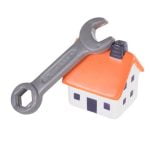Is now a good time for home improvement? With current housing market trends and economic factors influencing decisions, it’s crucial to explore the potential benefits, considerations, and impact of such projects. The timing of home improvement endeavors can significantly impact the outcome and overall success of the investment.
In the midst of evolving housing market dynamics and economic fluctuations, many homeowners are considering home improvement projects as a means to enhance their living spaces and increase property value. However, understanding the current landscape is essential before embarking on such endeavors. This article aims to delve into various aspects related to home improvement in order to provide comprehensive insights for individuals contemplating such ventures.
From assessing the advantages of home improvement projects to weighing the considerations and financing options available, this article aims to offer valuable information for homeowners looking to make informed decisions about their living spaces. Additionally, in light of the COVID-19 pandemic, it is important to examine its impact on home improvement projects – from disruptions in supply chains to shifting priorities among homeowners.
By exploring these key areas within the context of today’s housing market and economic conditions, individuals can gain a clearer understanding of whether or not now is an opportune moment for pursuing home improvement projects.
Benefits of Home Improvement
Home improvement projects offer a multitude of benefits that can significantly enhance the quality and value of your home. From increasing property value to improving overall living experience, there are numerous advantages to investing in home improvement projects. Additionally, incorporating energy-efficient upgrades can also lead to potential savings on utility costs in the long run.
Increased Property Value
One of the most compelling reasons to consider home improvement projects is the potential increase in property value. Upgrades such as kitchen renovations, bathroom remodels, and adding additional living space can significantly boost the resale value of your home. In today’s competitive real estate market, homes with modern amenities and updated features tend to command higher prices and attract more potential buyers.
Enhanced Living Experience
Beyond financial gains, home improvement projects can greatly improve the overall living experience for homeowners. Whether it’s creating a more functional and aesthetically pleasing interior or enhancing outdoor spaces for relaxation and entertainment, these improvements contribute to a greater sense of comfort and satisfaction with one’s living environment.
Potential Energy Savings
Another key advantage of home improvement projects is the opportunity to incorporate energy-efficient upgrades. Installing energy-efficient appliances, upgrading insulation, or switching to sustainable building materials not only reduces environmental impact but also leads to potential cost savings through lower energy bills. With an increasing emphasis on sustainability and conservation, eco-friendly home improvements are becoming more desirable for homeowners.
Considerations for Home Improvement
When considering whether now is a good time for home improvement, there are several important factors that homeowners should take into account before starting a project. These considerations include budget constraints, market trends, and personal needs. Each of these factors plays a crucial role in determining the feasibility and potential success of a home improvement endeavor.
Budget Constraints
One of the most significant considerations when contemplating a home improvement project is the budget. Homeowners must carefully assess their financial situation and determine how much they can afford to invest in the renovation or upgrade.
It’s essential to create a detailed budget that outlines all anticipated costs, including materials, labor, permits, and any unexpected expenses that may arise during the project. Additionally, it is advisable to set aside a contingency fund for unforeseen circumstances or additional requirements that may emerge along the way.
Market Trends
Another crucial factor to consider when deciding whether now is a good time for home improvement is current market trends. It’s essential to research the local housing market to understand which types of home improvement projects are in demand and adding value to properties in your area.
For example, certain upgrades such as kitchen remodels or energy-efficient installations may yield higher returns on investment compared to others. By aligning your renovation plans with prevailing market trends, you can maximize the potential resale value of your home.
Personal Needs
Finally, homeowners should also assess their personal needs and lifestyle preferences when contemplating a home improvement project. Different individuals may have varying priorities when it comes to renovating their homes – some may prioritize aesthetic enhancements for greater visual appeal, while others may focus on functional improvements that enhance daily living experiences. By evaluating your specific needs and long-term objectives for your home, you can make more informed decisions about which projects are most suitable for you at this time.
DIY vs Hiring Professionals
The decision of whether to tackle home improvement projects as do-it-yourself (DIY) tasks or to hire professional contractors is a crucial one for homeowners. While DIY projects can save money and provide a sense of accomplishment, hiring professionals offers expertise and convenience. Consider the following factors when evaluating the pros and cons of each option.
One advantage of taking on home improvement projects as DIY tasks is cost savings. By completing projects yourself, you can avoid paying labor costs associated with hiring professional contractors. Additionally, many individuals find DIY projects to be rewarding and enjoyable, as they are able to take an active role in improving their homes.
However, it is important to note that DIY projects require time, effort, and skill. For complex or large-scale projects, such as major renovations or structural work, hiring professionals may be necessary to ensure the safety and quality of the outcome.
On the other hand, hiring professional contractors for home improvement projects offers several benefits. Contractors bring expertise and experience to the table, ensuring that the project is completed efficiently and with high-quality workmanship. In addition, professionals have access to specialized tools and materials that may not be readily available to homeowners. However, it is essential for homeowners to carefully consider budget constraints when opting for professional services, as labor costs can significantly impact the overall project cost.
In considering whether now is a good time for home improvement, it is important to weigh these factors as well as the specific nature of the project at hand. Ultimately, the decision between DIY and hiring professionals boils down to individual circumstances such as budgetary constraints, time availability, skill level, and personal preferences.
Financing Home Improvement
When considering a home improvement project, one of the most crucial aspects to plan for is financing. Home improvement projects can come with a hefty price tag, so it’s important to explore different financing options available. Whether you’re looking to renovate your kitchen, build an addition, or upgrade your landscaping, here are some financing options to consider:
- Personal Loans: One option for financing home improvements is through personal loans. These loans are unsecured, meaning they don’t require collateral, and can be used for a variety of purposes including home renovations. Personal loans typically have fixed interest rates and repayment terms, making it easier to budget for the ongoing cost of the project.
- Home Equity Loans: Another popular choice for funding home improvement projects is through a home equity loan. This type of loan allows homeowners to borrow against the equity in their property. Home equity loans typically offer lower interest rates compared to personal loans because they are secured by the value of the property.
- Government Assistance Programs: In addition to traditional loans, there are various government assistance programs available to help finance home improvement projects. These programs may offer grants, low-interest loans, or tax incentives to encourage homeowners to make energy-efficient upgrades or other improvements that benefit the community.
Choosing the right financing option for your home improvement project will depend on factors such as your credit history, current mortgage situation, and the scope of the planned renovations. It’s important to carefully weigh the pros and cons of each option before making a decision.
In light of the COVID-19 pandemic and its economic impact, many homeowners may be hesitant about taking on additional debt for home improvement projects. However, with historically low interest rates and potential increases in property value from these improvements in an uncertain market, now could still be a good time for those who have stable financial situations and concrete plans for their renovations to move forward with their projects using any available financing resources.
Trending Home Improvement Projects
In today’s ever-changing housing market, there are several home improvement projects that homeowners are considering, and the demand for certain projects is on the rise. Whether it’s for personal enjoyment, increasing property value, or enhancing energy efficiency, these trending home improvement projects are worth considering. Here are some popular projects that are currently in demand and adding value to homes in the market:
- Kitchen Remodel: A kitchen remodel is always a popular choice for homeowners looking to add value to their homes. Upgrading countertops, cabinets, and appliances can not only improve the aesthetic appeal of the kitchen but also increase the overall value of the property.
- Bathroom Renovation: Similar to kitchen remodels, bathroom renovations are high on the list of trending home improvement projects. Upgrading fixtures, installing energy-efficient elements, and improving storage can make a significant impact on both the living experience and property value.
- Outdoor Living Spaces: With more people spending time at home due to various circumstances, there has been an increased interest in creating outdoor living spaces. This could include building a deck or patio, installing an outdoor kitchen area, or adding landscaping features to enhance outdoor entertainment and relaxation.
Considering these popular trends in home improvement projects may help homeowners make informed decisions about how to invest their time and money into maintaining or increasing their property values. By identifying current demands in the housing market, homeowners can strategically plan their home improvements to appeal to potential buyers while also maximizing their own enjoyment of their living space.
It seems that now is a good time for home improvement, as investing in trend-based projects can lead to an increased return on investment when it comes time to sell. However, it’s essential for homeowners to carefully consider factors such as budget constraints and personal needs before embarking on any renovation project.
Impact of COVID-19
The COVID-19 pandemic has undoubtedly had a significant impact on the home improvement industry. One of the most apparent effects is the disruption in the supply chain, which has led to delays in obtaining construction materials and higher prices for certain products.
This has made it challenging for homeowners to initiate and complete home improvement projects, especially those that require specific materials that are in short supply. This disruption has also affected the availability of professional contractors, as some have experienced labor shortages and increased demand for their services.
Furthermore, the pandemic has caused shifting priorities among homeowners when it comes to home improvement. With more people spending time at home due to remote work and social distancing measures, there is an increased focus on creating functional and comfortable living spaces.
As a result, there is a growing interest in projects that enhance home offices, outdoor living areas, and overall wellness features. Additionally, homeowners are placing greater emphasis on incorporating sustainable and energy-efficient elements into their homes, as environmental awareness becomes increasingly important.
Despite these challenges and changes brought about by the pandemic, there is still a strong case to be made for pursuing home improvement projects at this time. For individuals who have managed to secure necessary materials and reliable contractors, now may be an opportune moment to invest in enhancing their living spaces. Moreover, homeowners can take advantage of various financing options available for home improvement projects, such as personal loans and government assistance programs aimed at stimulating economic recovery.
| Impact of COVID-19 | Key Points |
|---|---|
| Supply Chain Disruptions | Delays in obtaining construction materials; Higher prices for certain products |
| Changing Homeowner Priorities | Increased focus on functional living spaces; Emphasis on sustainability and energy efficiency |
Conclusion
In conclusion, the decision to embark on a home improvement project is a significant one that should be carefully considered. With the current housing market trends and economic factors influencing this decision, it’s important to weigh the benefits and considerations before diving in. The benefits of home improvement – including increased property value, enhanced living experience, and potential energy savings – are certainly attractive. However, considerations such as budget constraints, market trends, and personal needs must also be taken into account.
One important factor to consider is whether to take on the project as a DIY endeavor or to hire professional contractors. While DIY projects can save money, they often require time, skill, and patience. On the other hand, hiring professionals can ensure high-quality work but may come with a higher price tag. Furthermore, financing options for home improvement projects are plentiful and should be explored to determine the best fit for individual circumstances.
Trending home improvement projects are constantly evolving, with certain renovations adding significant value to homes in today’s market. However, the impact of COVID-19 cannot be ignored when considering whether now is a good time for home improvement. Supply chain disruptions and changing homeowner priorities have influenced the industry in recent years. Ultimately, whether now is a good time for home improvement depends on various factors unique to each homeowner’s situation – from financial stability to market conditions.
Frequently Asked Questions
Is a Recession a Good Time to Do Home Improvements?
A recession can be a good time to do home improvements for several reasons. With contractors and suppliers looking for work, costs may be lower. Additionally, staying in an upgraded home can provide comfort during economic uncertainty.
Will Home Renovation Costs Go Down in 2024?
It’s difficult to predict if home renovation costs will go down in 2024. Various factors such as material prices, labor costs, and market demand can impact renovation expenses. It’s best to consult with industry experts closer to that time.

I’m thrilled to have you here as a part of the Remodeling Top community. This is where my journey as an architect and remodeling enthusiast intersects with your passion for transforming houses into dream homes.





